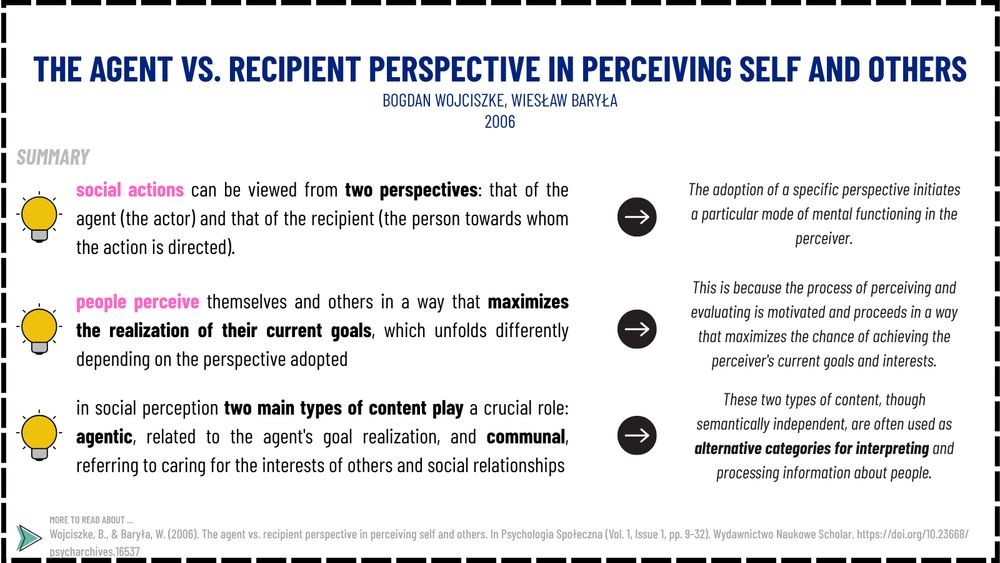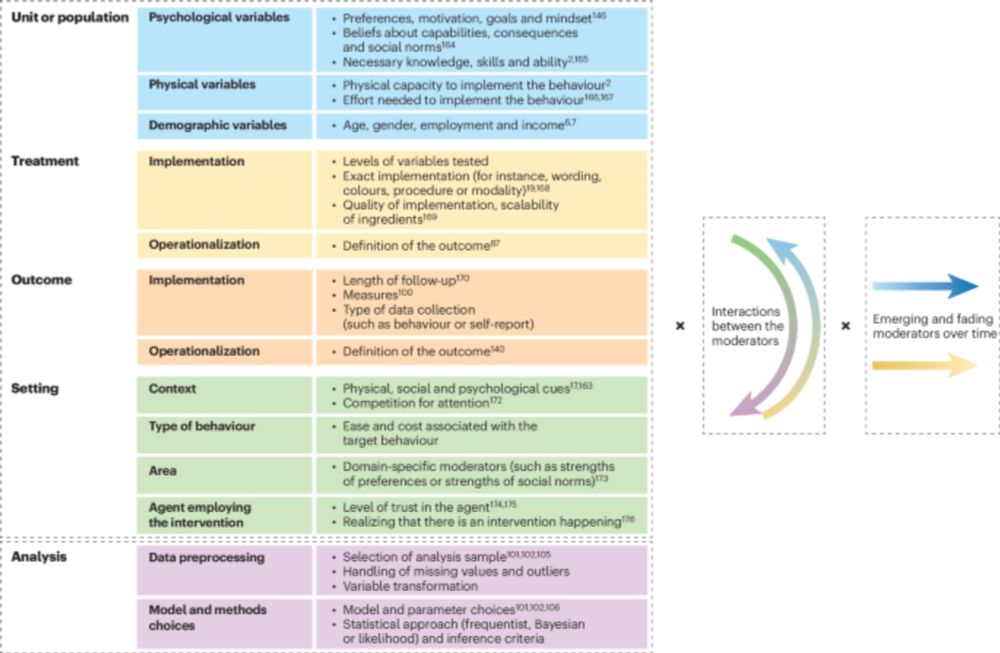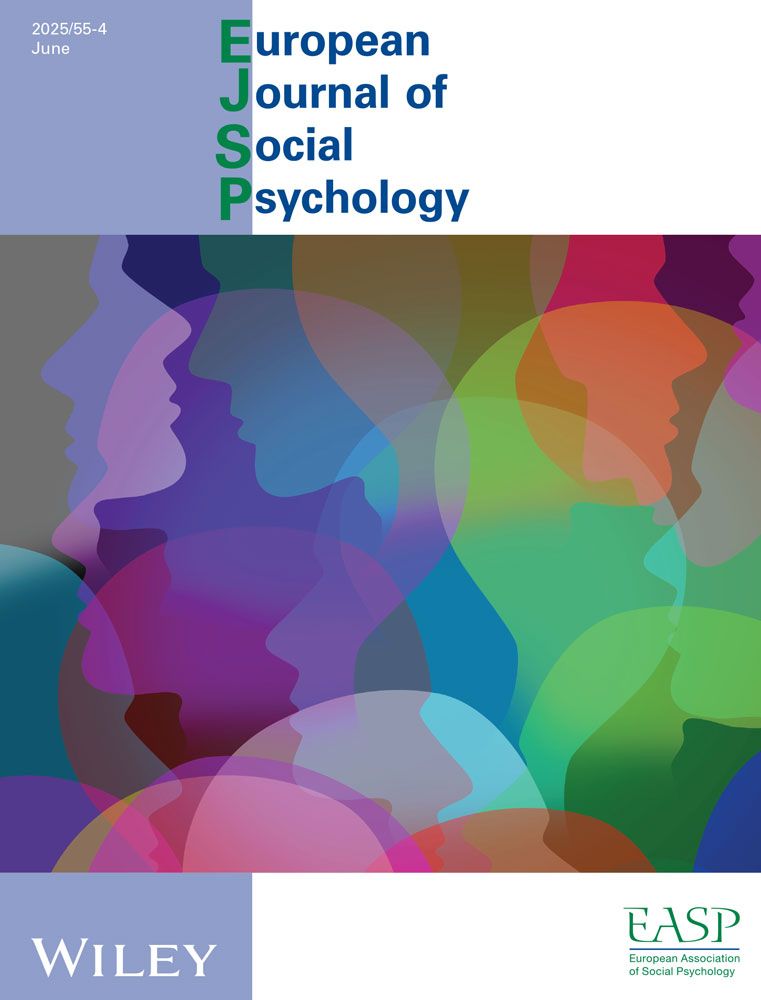
NIcolaus Copernicus University, Poland
Some of you might be interested in our new study.
Jurgiel, D., & Wojcik, A. D. (2025). “My Name Is Called Disturbance" - Public Support for Radical Climate Collective Actions: Political and Environmental Identity Drivers. PsyArXiv. doi.org/10.31234/osf...
#PsychSciSky #socialpsyc
Some of you might be interested in our new study.
Jurgiel, D., & Wojcik, A. D. (2025). “My Name Is Called Disturbance" - Public Support for Radical Climate Collective Actions: Political and Environmental Identity Drivers. PsyArXiv. doi.org/10.31234/osf...
#PsychSciSky #socialpsyc
cssn.org/news-researc...
cssn.org/news-researc...
It’s not that people doubt biodiversity is declining—it’s that we underestimate how many others already share this concern.
In our new Perspective, we review work on pluralistic ignorance and set out a research agenda to:

It’s not that people doubt biodiversity is declining—it’s that we underestimate how many others already share this concern.
In our new Perspective, we review work on pluralistic ignorance and set out a research agenda to:
rr.peercommunityin.org/PCIRegistere...
rr.peercommunityin.org/PCIRegistere...
Borges, J. L. (1942). El idioma analítico de John Wilkins. Sur, 92, 103–109.
Borges, J. L. (1942). El idioma analítico de John Wilkins. Sur, 92, 103–109.
18 years ago in the very first issue of @socialpsychbull.bsky.social two Polish psychologists laid out their model of social perception called "the agent vs. recipient perspective in perceiving self and others"
🔗 doi.org/10.23668/psycharchives.16537
in 🇵🇱 use AI
#psychology
#SocialPsyc

18 years ago in the very first issue of @socialpsychbull.bsky.social two Polish psychologists laid out their model of social perception called "the agent vs. recipient perspective in perceiving self and others"
🔗 doi.org/10.23668/psycharchives.16537
in 🇵🇱 use AI
#psychology
#SocialPsyc
global.oup.com/academic/pro...
global.oup.com/academic/pro...
Szaszi, Barnabas, Daniel G. Goldstein, Dilip Soman, Susan Michie. (2025). Generalizability of Choice Architecture Interventions. Nature Reviews Psychology.
Thanks to @szaszibarnabas.bsky.social for doing the lion's share!
www.nature.com/articles/s44...

You can find out here, if anyone is interested in how the British and Poles think about the need for immediate climate action. Our study reveals that "climate delayism"—beliefs justifying inaction despite accepting climate change—is prevalent in PL/UK.
osf.io/preprints/ps...
You can find out here, if anyone is interested in how the British and Poles think about the need for immediate climate action. Our study reveals that "climate delayism"—beliefs justifying inaction despite accepting climate change—is prevalent in PL/UK.
osf.io/preprints/ps...
1/8 🧵

1/8 🧵
I am again struck by how pathetic our little 0-10 scales are at capturing what they're saying.
Here's a retired lady telling my assistant what it's like having a son with paranoid schizophrenia.
osf.io/preprints/so...
osf.io/preprints/so...
onlinelibrary.wiley.com/doi/10.1111/...

onlinelibrary.wiley.com/doi/10.1111/...
Loose thought. The rapid acceptance of LLMs within the psychological community as substitutes for human participants can be attributed partly to the significant reliance on data from external research firms and web surveys.

Loose thought. The rapid acceptance of LLMs within the psychological community as substitutes for human participants can be attributed partly to the significant reliance on data from external research firms and web surveys.
Can we take the psyche out of psychology?
Can we take the psyche out of psychology?
Did you lose sleep over what factors influence support for individual and collective pro-environmental actions? Worry no more! This concise introduction will help you grasp the topic in half an hour!
#SocialPsyc #ClimateChange #EnvPsych #Envhun
Did you lose sleep over what factors influence support for individual and collective pro-environmental actions? Worry no more! This concise introduction will help you grasp the topic in half an hour!
#SocialPsyc #ClimateChange #EnvPsych #Envhun

Introduction to recent issues in the philosophy of statistics by Kao, Mayo, and Shech.
https://doi.org/10.1007/s11229-023-04128-z
#Stats
#Statistics
#PhilSci
via https://fediscience.org/@MarkRubin/110103603541297259

Introduction to recent issues in the philosophy of statistics by Kao, Mayo, and Shech.
https://doi.org/10.1007/s11229-023-04128-z
#Stats
#Statistics
#PhilSci
via https://fediscience.org/@MarkRubin/110103603541297259
T. Milfont ), we theoretically analysed the relationship between various types of social identity and pro-environmentalism.
#SocialPsyc #ClimateChange #EnvPsych

T. Milfont ), we theoretically analysed the relationship between various types of social identity and pro-environmentalism.
#SocialPsyc #ClimateChange #EnvPsych
www.e-elgar.com/shop/gbp/the...

www.e-elgar.com/shop/gbp/the...
#psychjob
t.co/3uoe8ChYVW
#psychjob
t.co/3uoe8ChYVW

